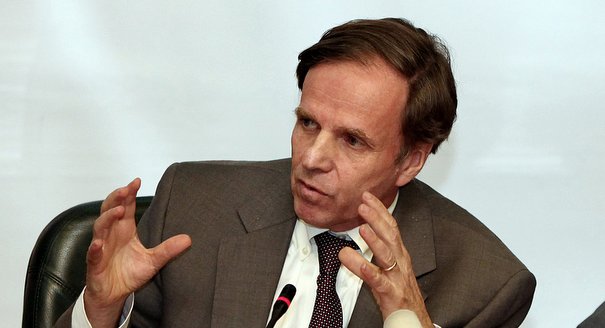Registration
Thank you!
You will receive an email confirming your registration.
After nearly four years of active work seeking to advance U.S. government support for democracy and human rights abroad, Assistant Secretary Michael H. Posner is leaving the Obama administration. Carnegie Endowment Vice President Thomas Carothers facilitated a conversation with Posner to explore some of his personal lessons learned, spanning a wide range of regions and themes, from responding to political developments in Russia and Egypt to managing human rights diplomacy with China and addressing new restrictions of Internet freedom.
From the NGO World into the Government
- Moving ‘Inside’: Posner began his career in the non-profit sector working on human rights advocacy in Latin America and beyond. He spoke about his experience of moving from the “outside” to the “inside” of government, and emphasized that despite the bureaucracy, he was positively surprised by the amount of positive change that the State Department has been able to affect.
- Advice: When asked about advice he would give to NGOs based on his experience in the government, Posner suggested that NGOs should spend more time developing concrete policy proposals for how to reduce human rights abuses rather than focusing on documenting abuses that are already well known to the United States.
The U.S. Role in Supporting Democratic Transitions
- The Case of Egypt: While noting the tremendous challenges facing Egypt, Posner expressed optimism about the country’s future. He underlined that the United States should adopt a stronger line toward the Egyptian government’s human rights abuses, while also emphasizing that such criticism should not necessarily impede U.S. financial assistance to the country.
- A Focus on Civil Society: Posner suggested that U.S. influence on domestic political developments in the Middle East is often overestimated. Nevertheless, he argued that the most productive role the United States can play in difficult political contexts is identifying and supporting the agents of political change that will shape the region in future years. He explained that this can be done by protecting the space for independent civil society or engaging young and often politically frustrated citizens, for example.
- Identifying Political Openings: Speaking about the U.S. role in the political transition process in Burma, Posner recognized that change was primarily driven by internal factors. However, the United States helped accelerate change by recognizing political openings and exerting increasing pressure on the Burmese leadership, such as by demanding the release of specific political prisoners and organizing a human rights dialogue with the government.
Speaking out Against Human Rights Abuses
- A False Tradeoff: Posner criticized the U.S. government’s tendency to sideline human rights issues in official policy dialogues out of concern that they will damage other strategic foreign policy objectives. Instead, he suggested that Washington tends to underestimate the amount of space there is for addressing human rights abuses in partner countries, which usually appreciate a more honest and straightforward approach.
- Engaging China: In the case of China, Posner explained that he focused on raising rights issues such as Internet restrictions and labor and food safety standards that the Chinese government perceived as domestic rather than purely Western concerns. As a result, Chinese officials were more eager to listen and respond to U.S. policy recommendations.
Emerging Challenges
- Internet Freedom: During his time in office, Posner witnessed the growing recognition in the U.S. government that addressing restrictions on Internet freedom requires a much broader effort than simply developing censorship circumvention technology. Current efforts have to include diplomatic engagement, new tools to train and equip human rights advocates, and the development of international standards and an international policy dialogue.
- New Global Partners: According to Posner, the struggle against Internet censorship exemplifies the need for the United States to reach out to new global partners and encourage a multi-stakeholder process rather than unilateral action. Initiatives such as the Open Government Partnership represent promising areas to identify common interests with emerging democratic powers that tend to be more skeptical about international democracy assistance and human rights advocacy.
- Human Rights and Global Business: Posner emphasized that the U.S. government still struggles to respond to the new challenges posed by the increasing influence of non-state actors such as multinational corporations with global reach.
